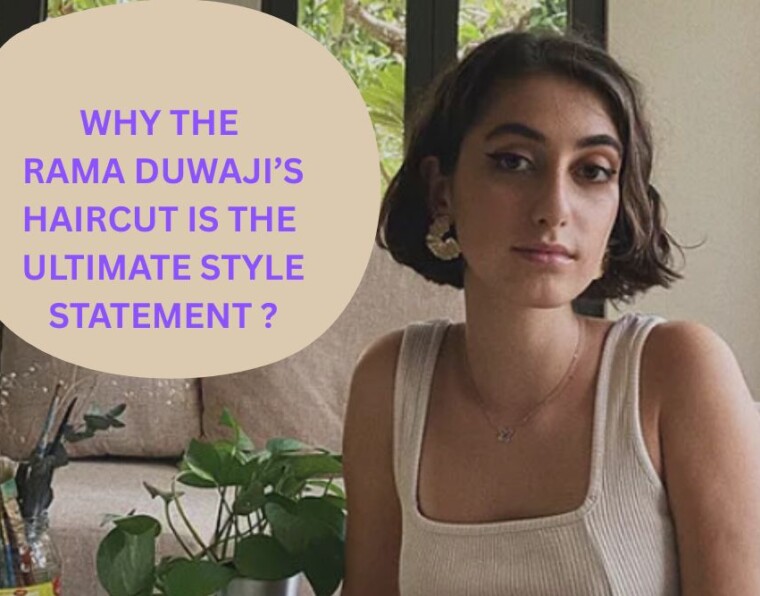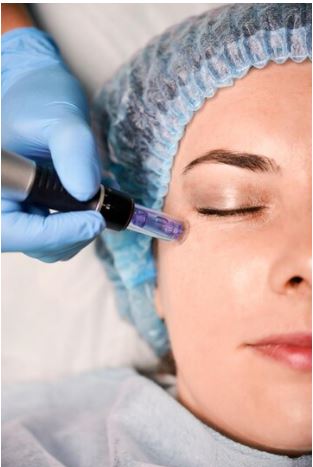Last updated on October 11th, 2025 at 02:39 pm
AI has been a game-changer across industries, and this reality hit me during a recent conversation with my cousin, who had just arrived from London. He works at a renowned tech firm and shared how AI is reshaping the IT sector—automating tasks, replacing programmers, and even shutting down call centers. The fear of layoffs loomed over him too, making me realize the massive impact AI is having.
That discussion got me thinking: if AI can disrupt tech so profoundly, what about the beauty industry? After much contemplation, I decided to explore how AI could transform beauty, from personalized skincare to virtual makeup try-ons.
The beauty and cosmetics industry has always been fast-paced and driven by creativity. But in recent years, AI technology has started to reshape how beauty brands operate. From personalized skincare to virtual try-ons, AI is making its mark in ways we’ve never seen before. The big question is: will AI replace jobs in the beauty industry? Let’s dive into this transformation and explore both the opportunities and challenges AI brings.
Table of contents
- Benefits of AI in beauty industry
- How beauty giants are using AI
- Infographic
- Can AI replace human touch in cosmetology?
- How far is AI from replacing beauty jobs
- conclusion
- source of the article
Benefits of AI in the Cosmetology Field
AI is transforming the beauty industry, especially in skincare, by making treatments more accurate and personalized. Here’s how it benefits both clients and cosmetologists:
- Accurate Skin Analysis – AI-powered tools quickly assess skin conditions, identify problem areas, and recommend effective treatments.
- Efficient Workflow – Automation helps with appointment scheduling and inventory management, allowing cosmetologists to focus on clients.
- Personalized Skincare – AI analyzes skin type, age, lifestyle, and environment to suggest the best products and treatments.
- Access to Expert Knowledge – AI-driven platforms keep cosmetologists updated with the latest skincare trends and research.
By integrating AI, the beauty industry is becoming more precise, efficient, and client-focused.
How Beauty moguls are using AI in beauty and cosmetic industry
AI-Powered Personalization: Changing How We Shop
One of the biggest ways AI is affecting beauty jobs is through personalization. AI helps beauty brands analyze a customer’s skin type, preferences, and even environmental factors to create personalized beauty routines. For instance, companies like L’Oréal and Estée Lauder use AI-powered tools to recommend skincare and makeup products that fit an individual’s unique needs. This means that beauty consultants, once needed to provide in-store product recommendations, are now supported by AI, making their roles more focused on customer engagement and less on product selection.

AI in Virtual Try-Ons: The Future of Makeup Shopping
Virtual try-ons are another area where AI is making waves. With AI, customers can see how makeup products will look on their faces without physically applying them. Sephora’s Virtual Artist is a great example of this. It uses augmented reality (AR) and AI to let customers try on lipstick, eyeshadow, and foundation in real-time through their phones. While this may reduce the need for in-person makeup testers, it creates new roles in technology and customer experience. Beauty professionals will likely shift from applying makeup to guiding customers on how to make the most of AI tools.
AI in Skin Analysis: Changing Dermatology Jobs
AI is also revolutionizing skincare with advanced skin analysis tools. Apps like YouCam Makeup analyze a person’s skin condition and recommend personalized skincare routines. These apps rely on AI algorithms to detect issues like dryness, wrinkles, and pigmentation. As these tools become more popular, dermatologists and skincare professionals might find their roles evolving. Rather than relying solely on manual analysis, they’ll integrate AI tools to provide more accurate, data-driven recommendations, allowing them to focus on higher-level consultations.
The Rise of AI in Beauty Formulations
Another interesting development is how AI is being used in the creation of beauty products. Companies like Unilever and Procter & Gamble use AI to speed up the process of product formulation. AI helps researchers analyze vast amounts of data to create new ingredients or find more effective formulations. While this reduces the need for manual testing, it opens up new opportunities in AI research, product development, and lab management. Beauty scientists will likely work alongside AI systems, using them to accelerate innovation.
AI and the Sustainable Future of Beauty
Sustainability is a growing concern in the beauty industry, and AI is playing a key role in creating eco-friendly solutions. AI-powered supply chain management tools help companies track ingredients, reduce waste, and optimize production. For example, L’Oréal uses AI to improve its packaging and reduce plastic waste. These advancements could lead to a shift in jobs, with professionals focusing on sustainable practices and AI-driven supply chain management. Sustainability experts in the beauty industry will need to adapt and work hand-in-hand with AI technologies to meet eco-friendly goals.
AI in Beauty Marketing: Targeting the Right Customer
Marketing is another area where AI is making a big impact. Beauty brands use AI algorithms to analyze customer data, predict buying behavior, and create targeted advertising campaigns. For example, Shiseido uses AI to help marketers understand consumer preferences and design personalized ads. As AI becomes more embedded in marketing strategies, jobs in digital marketing will evolve. Marketers may rely more on AI tools for data analysis and campaign management, shifting their focus from manual tasks to strategy and creativity.
AI’s Role in Customer Service: Chatbots and Virtual Assistants
AI chatbots and virtual assistants are becoming more common in the beauty industry, helping brands provide 24/7 customer support. Brands like Huda Beauty have incorporated chatbots into their websites and social media to answer customer queries and process orders. This shift will change customer service jobs. While some routine tasks may be automated, customer service roles will evolve into positions that require more human interaction, empathy, and problem-solving skills.
Can AI Replace Human Touch in Cosmetology?
AI is advancing in cosmetology, but it cannot replace the human touch. Here’s why:
- Emotional Connection – Cosmetologists build trust, listen to clients, and provide emotional support, something AI can’t replicate.
- Personalized Care – Human hands can assess skin texture and hair condition, adjusting treatments in real time, unlike AI, which relies on data.
- Creative Expertise – Cosmetology is an art that requires imagination, from unique hairstyles to customized skincare routines.
- Color Mastery – Hair coloring involves more than algorithms; understanding undertones and facial features requires a skilled colorist.
How fast will it replace jobs..whats the target
While AI enhances the industry, human cosmetologists remain irreplaceable due to their creativity, intuition, and personal connections.
AI is already transforming the beauty industry, but it is unlikely to replace human professionals entirely. Instead, it will automate repetitive tasks and enhance efficiency. Here’s a rough timeline for AI’s impact on different beauty jobs:
Short-Term (Next 3-5 Years)
- Automated Skincare Analysis – AI-powered skin assessment tools will become more advanced, reducing the need for manual evaluations.
- Virtual Beauty Consultations – AI chatbots and apps will offer personalized skincare and makeup recommendations.
- AI-Powered Hair & Makeup Simulations – Virtual try-ons will become more sophisticated, allowing clients to preview looks before treatments.
Mid-Term (5-10 Years)
- Robotic Haircuts & Styling – AI-driven robotic arms may assist with simple haircuts and styling, but human stylists will still be needed for precision and creativity.
- AI-Generated Skincare Formulas – Personalized skincare products based on AI analysis will become mainstream.
- Smart Beauty Devices – AI-powered at-home beauty gadgets will handle treatments like facials, LED therapy, and even basic hair coloring.
Long-Term (10+ Years)
- Fully Automated Salons? – While AI may handle basic services, high-end personalized treatments will still require human expertise.
- Advanced Beauty Robotics – Machines may become capable of complex procedures like customized haircuts or nail art, but creativity and emotional connection will keep human professionals relevant.
Conclusion: Embrace the Change
AI in the beauty industry is not about replacing human workers, but rather empowering them to work smarter. It opens up opportunities in new areas like tech, AI development, and data analysis. As the industry evolves, beauty professionals will have to adapt, but they’ll also find new and exciting opportunities in the process. The future of work in beauty isn’t about AI taking over, but about AI and humans working together to create a more personalized, sustainable, and efficient beauty world.
source of the article:
The insights and data presented in this article have been carefully summarized from a recent Forbes publication, ensuring accuracy and alignment with industry-verified information.




